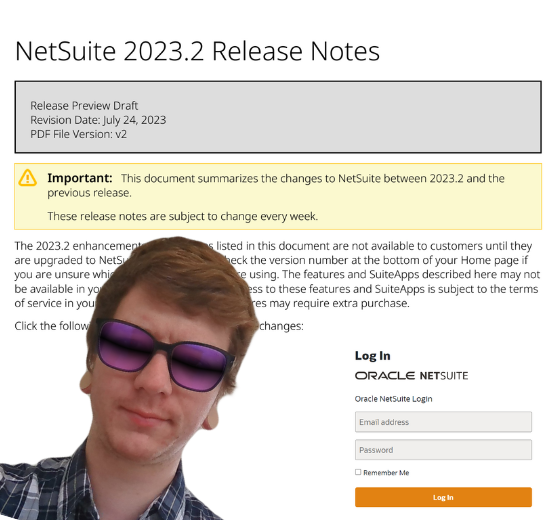Personalities. We all have one. Each one unique. Yet, despite this, as humans we instinctively conform without realising and we all follow the same complexity bias. What is a complexity bias? It’s when we ignore the simple in favour of the complicated. Why? Simply because we feel it’s safer or better value. We dismiss the simple, expecting it not to be good enough, and prefer a more complex solution, but just because we prefer it, doesn’t mean we don’t fear complexity and talk ourselves out of making important progress with technology.
This cognitive bias affects every business. Complexity has been a tool engineered by marketers to sell for decades and psychologists have studied its use, throughout the retail industry as a whole, to see how the language we use alone can determine a sale. Our sector (IT and software) is an acronym-abundant and complex industry that aims to simplify but often confuses in the process and can put people off progressing.
So, what’s this got to do with business growth?
When the complexity bias is active, we naturally think something is harder to achieve than it is and swiftly resign responsibility to understand it. Here’s an example: A FinTech business providing a service to other businesses – let’s call it Global Aspirations – is in its third year of trading and the recently appointed CFO is considering whether it would be beneficial to utilise some of its B-round funds on adopting new software. They believe making a switch to a single business management solution – or Enterprise Resource Planning (ERP) system – is too expensive, too disruptive and the chosen software is likely not to be compatible with existing systems; basically, too complex and the change is resisted, or at least put on hold. What Global Aspirations is missing out on is the opportunity to:
- automate almost all financial tasks – thus removing the need for dense back-office resources now or in the future;
- experience real-time and pre-created reports across multiple markets and tax-jurisdictions – removing time-greedy manual reporting, necessary to understand the business;
- drill down to any level within customer sales, products or projects with a few clicks – allowing an unambiguous view of risks and opportunities, crucial in the uncertain times we live in.
It is clear our fearful firm is missing out on the opportunity to grow easier, faster and more cost-effectively. How can businesses like Global Aspirations overcome their fears, be confident in choosing the right software and implementation partner, and avoid delaying expansion of the company? Here’s how:
Beat the complexity bias
Employ the law of parsimony – also known as Occam’s Razor – and the complexity bias is stopped in its tracks, by focusing on the simplest view in every situation. Newton, Einstein, Steve Jobs and Steven Hawking were all advocates of this approach where the first step is to stop assuming the task in hand is too complicated and just consider its simplicity. Look closely and it’s clear to see that ERP Software isn’t complicated – it’s simple to use, adaptable and flexible. Our CFO at Global Aspirations could focus on the investment an ERP solution provides from a financial and time-saving perspective in this instance.
An ERP system, such as Oracle NetSuite, simplifies day-to-day business activities so that every department can benefit from streamlined processes and every employee can concentrate on their role in helping to grow a successful, global business.
Define what the software needs to do
What we advise our fictional CFO to do in this example, is identify what issues the business needs to solve. This can be done with the support of a software provider like Brightbridge. Any software implementation company should have enough sector expertise to be able to tease out the pain points and plan the – most simple – solution to address any challenges.
Map workflows
This may seem logical but many businesses miss this vital step before they consider or buy new software and systems; our CFO, in part because he was newly appointed, just wasn’t sure where to start, so he put the potential project on hold. The complexity bias is easily triggered when new software doesn’t appear to immediately do what a business expects and frustrations (and barriers) inevitably impinge. However, when the right tools and features are highlighted and internal teams are consulted from the early planning stage, identifying the right software to aid business growth becomes a simple task. The CFO, COO and the CEO of Global Aspirations eventually sat down with a software implementation firm to map what efficient workflows looked like – from sales funnels and global reporting to CRM and helpdesk – and the complexity they envisaged soon evaporated. Specialist teams like ours at BrightBridge are here to deal with any complexities that arise, businesses like Global Aspirations are there to focus on the benefits that will facilitate growth.
How BrightBridge can help
Overcoming fear of complex IT systems and the implementation of such is crucial for any business wanting to take operations to the next level. The foray into the world of ERP systems doesn’t have to be complicated or time-consuming, with the right guidance, software and support. BrightBridge Solutions provide an end-to-end, tailored solution and we have implemented next-gen intelligent ERP cloud solutions for FinTech firms such as OpenPayd and Koine, and we know a number of the biggest names in the financial technology sector are utilising Oracle NetSuite’s intelligent software.
Banish the complexity bias and simplify your next steps – give our team a call to discuss your thirst for growth.
Keep reading

What is a NetSuite implementation partner? How do you choose one?

Technology fit for total customer service in 2024

Retail and wholesale distribution: how to improve supply chains

Ditching Sage 1000: what you need to know from businesses that have done it

6 ways AI-ready Microsoft Dynamics 365 helps chartered associations serve members

6 retail and wholesale distribution challenges and how NetSuite solves them

The most exciting features in Microsoft Dynamics 365 2023 Release Wave 2

How to manage a new NetSuite Release: one expert's update process

What’s in NetSuite Release 2023.2?

